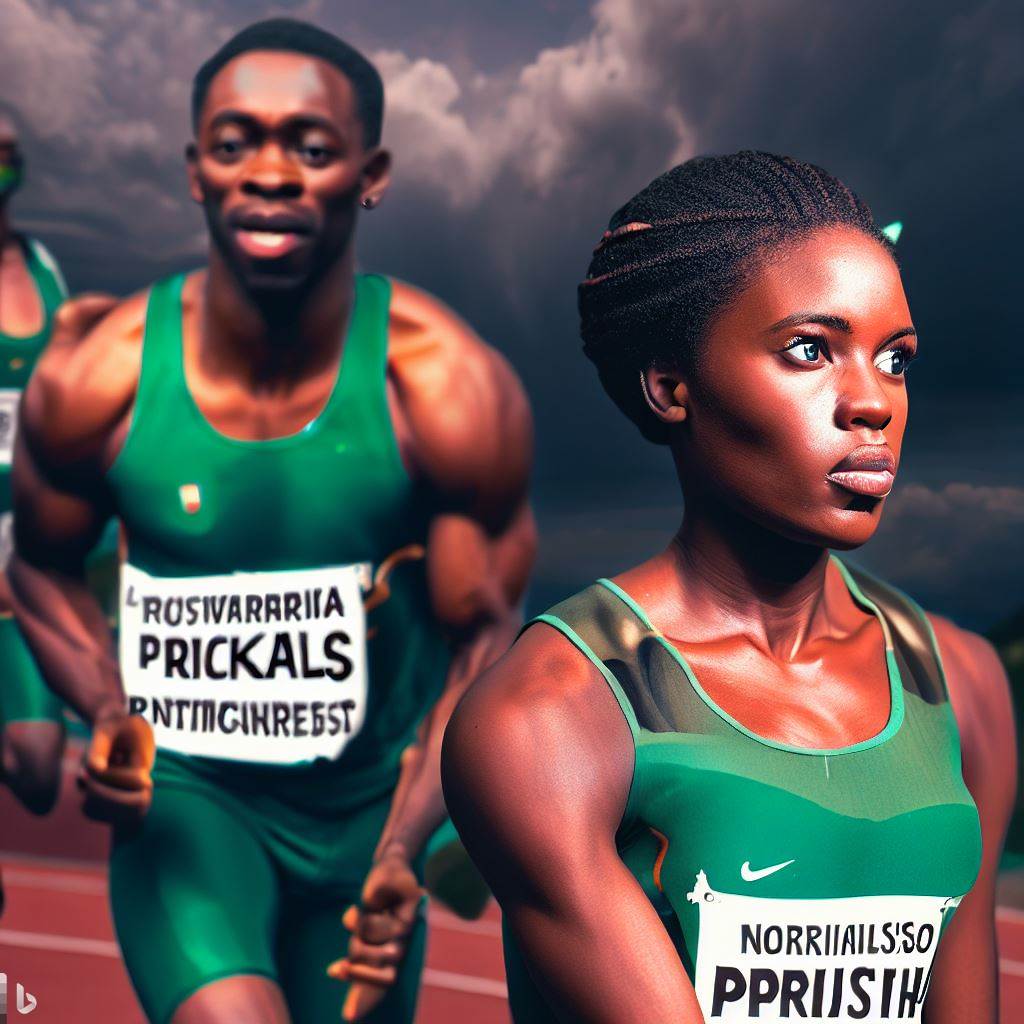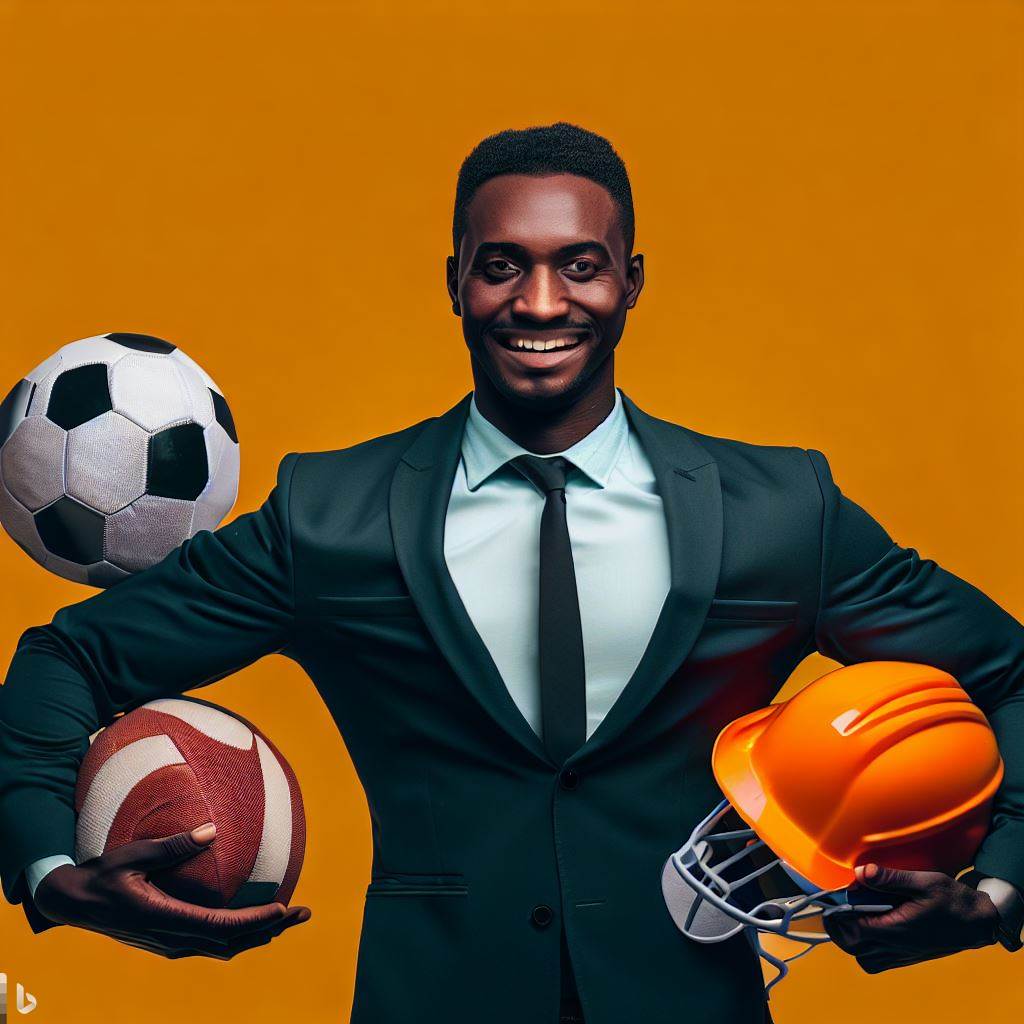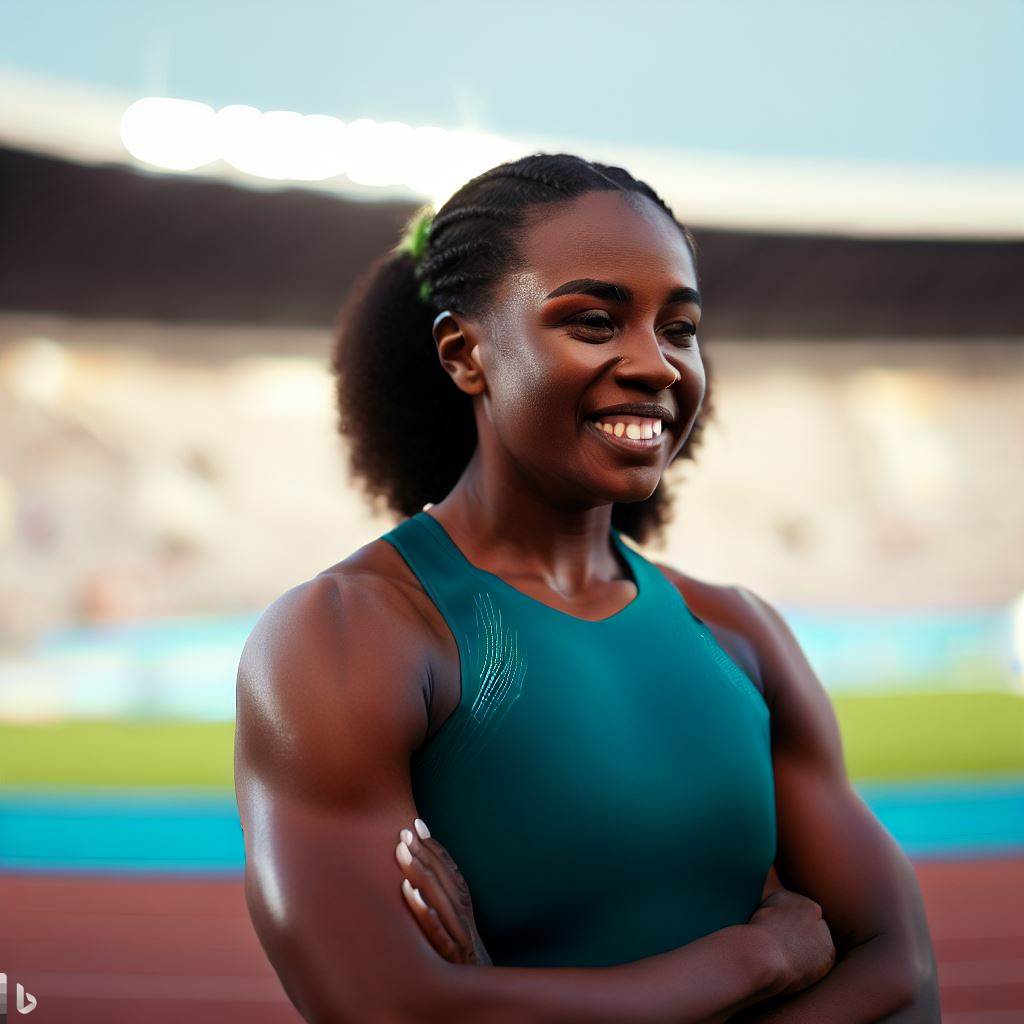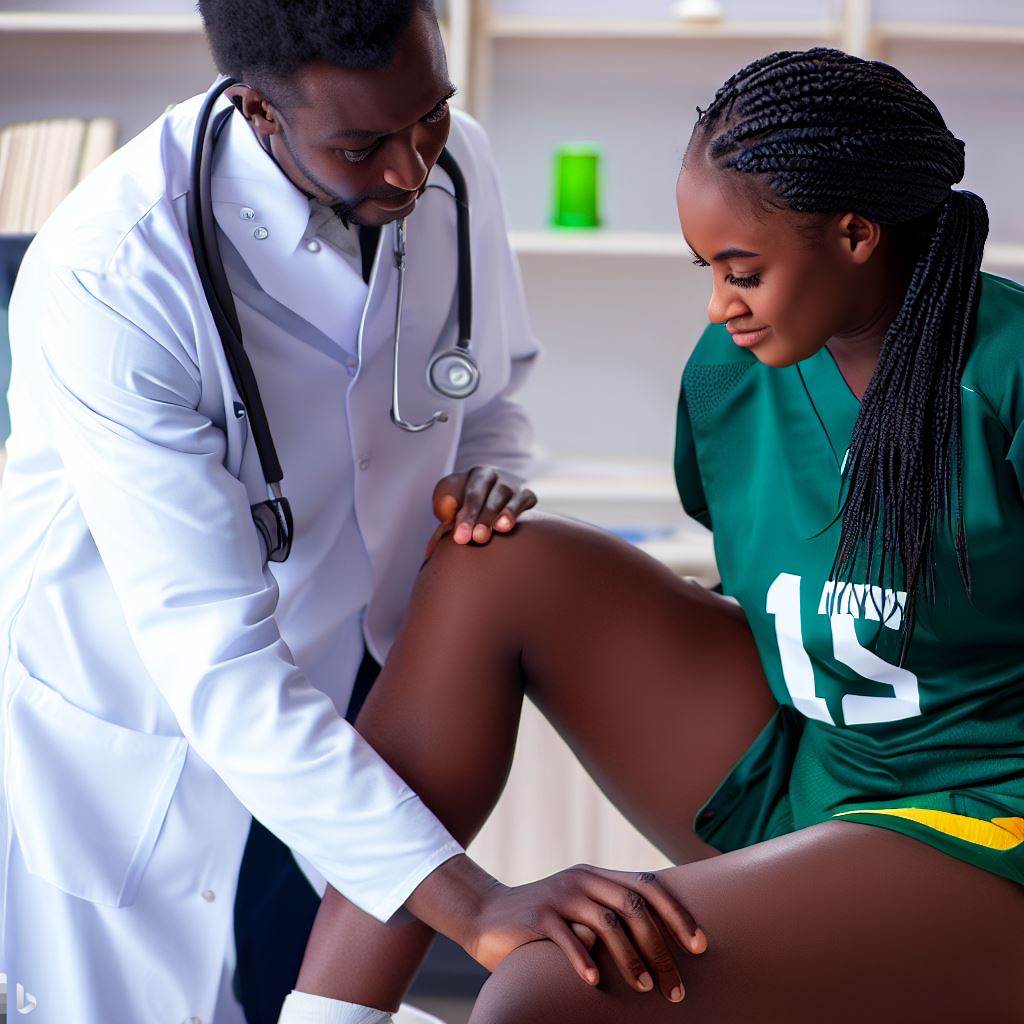Introduction
Nigeria has a rich history in athletics and has had great success in track and field over the years. Athletics is an important aspect of Nigerian culture, and its athletes are celebrated for their achievements.
Nigeria has produced a number of world-class track and field athletes, including Mary Onyali and Chioma Ajunwa, who have won numerous medals in international competitions.
The success of these athletes has put Nigeria on the map in the world of athletics and has brought pride to the nation. Athletics is also an important source of national pride in Nigeria.
The sport has been used as a way of uniting Nigerians from diverse backgrounds and has played a crucial role in promoting national unity.
Additionally, athletics has provided an avenue for Nigerian youth to showcase their talents and pursue their dreams.
Many young Nigerians see athletics as a way to escape poverty and build a better life for themselves.
In essence, athletics is a vital part of Nigeria’s culture and history. It has brought success, pride, and unity to the nation, and has provided opportunities for generations of young Nigerians to pursue their dreams.
Read: How to Succeed in the Nigerian Professional Sports Scene
Overview of Nigeria’s Athletics Training Systems
In Nigeria, there are various programs involved in athletics training systems. These programs work together to develop and train athletes. The following are some of the programs:
National Institute for Sports (NIS)
The National Institute for Sports (NIS) is a government-owned institution responsible for developing sports in Nigeria.
The institute provides training in sports management, coaching, and sports medicine. It also trains sports administrators to manage sports at the national and international levels.
Athletics Federation of Nigeria (AFN)
The Athletics Federation of Nigeria (AFN) is the national governing body for athletics in Nigeria.
It is responsible for developing and organizing athletics events and selecting athletes for international tournaments. The AFN also works with the NIS to train coaches and athletes.
Nigerian Olympic Committee (NOC)
The Nigerian Olympic Committee (NOC) is responsible for selecting and preparing athletes to represent Nigeria at the Olympic Games.
The committee works with the AFN and other sports associations to identify and train athletes for the games.
High-Performance Centre (HPC)
The High-Performance Centre (HPC) is a facility that provides advanced training and support for elite athletes.
The center is equipped with state-of-the-art sports equipment and trainers who help athletes to improve their performance. The HPC is supported by the Nigerian government and private sponsors.
State Sports Councils (SSC)
The State Sports Councils (SSC) are responsible for developing sports at the state level. They work with local clubs and schools to identify and train athletes.
The SSC also provides facilities and support for sports development in their respective states.
Police Sports Association (PSA)
The Police Sports Association (PSA) is a non-profit organization that promotes sports among Nigeria’s police force.
The association organizes sports events and provides training for police officers who are interested in sports. The PSA also provides support for police officers who compete in national and international tournaments.
Overall, Nigeria has a well-structured athletics training system that involves various programs at the national and local levels.
These programs work together to identify and train talented athletes who can represent Nigeria at international tournaments.
Read: Top Challenges Faced by Nigerian Athletes Today
Structure of Nigeria’s Athletics Training Systems
Understanding the hierarchical structure of Nigeria’s athletics training systems is crucial for athletes, coaches, and enthusiasts.
It determines where resources, talents, and attention are directed and identifies potential opportunities and challenges.
National Level
The national level is the apex or highest level of Nigeria’s athletics training systems.
It is responsible for organizing and managing major national competitions, including the All Nigeria Athletics Championships, National Sports Festival, and National Youth Games.
The national level is also in charge of selecting and sending Nigerian athletes to international competitions, such as the Olympics, World Athletics Championships, and African Games.
It oversees the training and preparation of the national team, including coaching, nutrition, medical care, and equipment.
The national level is administered by the Athletics Federation of Nigeria (AFN), a national sports federation recognized by the Federal Ministry of Youth and Sports Development.
The AFN is governed by a board of directors, elected every four years, and headed by a president.
State Level
The state level is the intermediate level of Nigeria’s athletics training systems.
It is responsible for coordinating and developing athletics in each of the 36 states and the Federal Capital Territory (FCT).
Every state has a State Athletics Association (SAA) affiliated to the AFN.
The state level is responsible for organizing state championships, qualifying competitions, and talent identification programs.
It provides support and resources to local athletics clubs and coaches and helps to groom and nurture young talents.
The state level coordinates grassroots and community-based athletics programs in schools, colleges, and villages, with the aim of promoting sportsmanship and healthy living.
The state level is administered by the SAA, which is governed by an executive committee, elected every four years, and headed by a chairman.
The SAA works closely with the state government and other stakeholders to advance athletics development and promote sustainable sports culture.
Club Level
The club level is the foundation or grassroots level of Nigeria’s athletics training systems.
It is where individual athletes start their careers and hone their skills. Clubs provide a platform for training, competition, and progression to higher levels.
Clubs may range from informal groups of friends to formal organizations with legal recognition and structures.
Most clubs are affiliated to the SAA or the AFN, which entitles them to participate in sanctioned events and access resources and support.
Clubs may specialize in sprints, jumps, throws, distance, or multi-events, and may have different age categories, ranging from under-10 to masters.
they may also have coaches, who provide guidance and instruction to athletes, and facilities, such as tracks, courts, or gyms, for training and practice.
Clubs may also provide uniforms, equipment, and travel expenses for athletes, depending on availability and sponsorship.
The club level is the most diverse and vibrant level of Nigeria’s athletics training systems.
It is where athletes learn discipline, perseverance, teamwork, and leadership, and where they form lifelong friendships and memories. It is where the future of Nigerian athletics lies.
In additionally, Nigeria’s athletics training systems have a hierarchical structure that entails the national, state, and club levels.
Each level has specific roles, responsibilities, and challenges, and requires collaboration, innovation, and commitment from all stakeholders to achieve success.
By understanding and investing in these systems, Nigeria can nurture and showcase world-class talent, inspire and unite its citizens, and contribute to the global sports arena.
Read: Rising Stars in Nigeria’s Sports and Athletics Scene
Find Out More: Rising Stars in Nigeria’s Sports and Athletics Scene
Challenges Faced by Nigeria’s Athletics Training Systems
Financial Challenges
One of the key challenges faced by Nigeria’s athletics training system is inadequate funding. The government has historically neglected sports development, and this has had a significant impact on athletics training systems in the country.
Nigerian athletes do not receive sufficient financial support to cover expenses such as equipment, training fees, and travel costs for competitions.
Additionally, private funding for athletics is rare, and sponsorship opportunities are limited. This makes it challenging for athletes to sustain their training programs, let alone reach their full potential.
With the rising cost of living and inflation, the financial burden on athletes, coaches, and sports administrators is higher than ever.
Lack of Proper Facilities
An essential factor in effective athletics training is access to high-quality training facilities. Nigeria’s athletics training systems lack adequate infrastructure, such as world-class tracks, training equipment, and gyms.
Many athletes have to train on poorly maintained fields, which can result in injuries and hinder their performance.
The lack of proper facilities hinders the creation of a conducive training environment, making it difficult for athletes to compete at an international standard.
Many international athletes have access to state-of-the-art facilities, which gives them a competitive edge over Nigerian athletes.
This puts Nigerian athletes at a disadvantage, and they may struggle to compete with athletes from other countries.
Inefficient Management of Training Systems
The management of athletics training systems in Nigeria is poor.
There is a lack of coordination between various stakeholders, including coaches, athletes, sports federations, and government agencies responsible for sports development.
This lack of coordination leads to confusion and disorganization within the training system.
Furthermore, there is an absence of a clear development plan for athletics in Nigeria.
The absence of a structured development plan makes it hard to identify and promote talented athletes at an early stage. This means that many athletes with potential may not receive the training and support they need to excel.
Political Instability
The political instability in Nigeria is another significant challenge facing athletics training systems.
The country has experienced political unrest, such as protests and terrorist attacks, which have significantly disrupted sporting activities.
These security concerns have made it difficult for athletes to move around, train, and compete in various regions.
The political unrest prevents international competitions from being hosted in Nigeria, meaning that athletes may miss out on crucial opportunities to gain international exposure and recognition.
This lack of exposure can make it harder for athletes to attract private sponsors and funding, further compounding the financial challenges faced by athletes.
In summary, Nigeria’s athletics training systems face several critical challenges, including financial constraints, lack of proper infrastructure, poor management, and political instability.
Addressing these issues requires the government to invest more resources into sports development and establish a clear roadmap for athletics development in Nigeria.
Additionally, private entities must explore opportunities to provide financial support to athletes and create world-class infrastructure to facilitate effective training programs.
Read: Nigeria’s Military Strategy in a Changing World: An Analysis
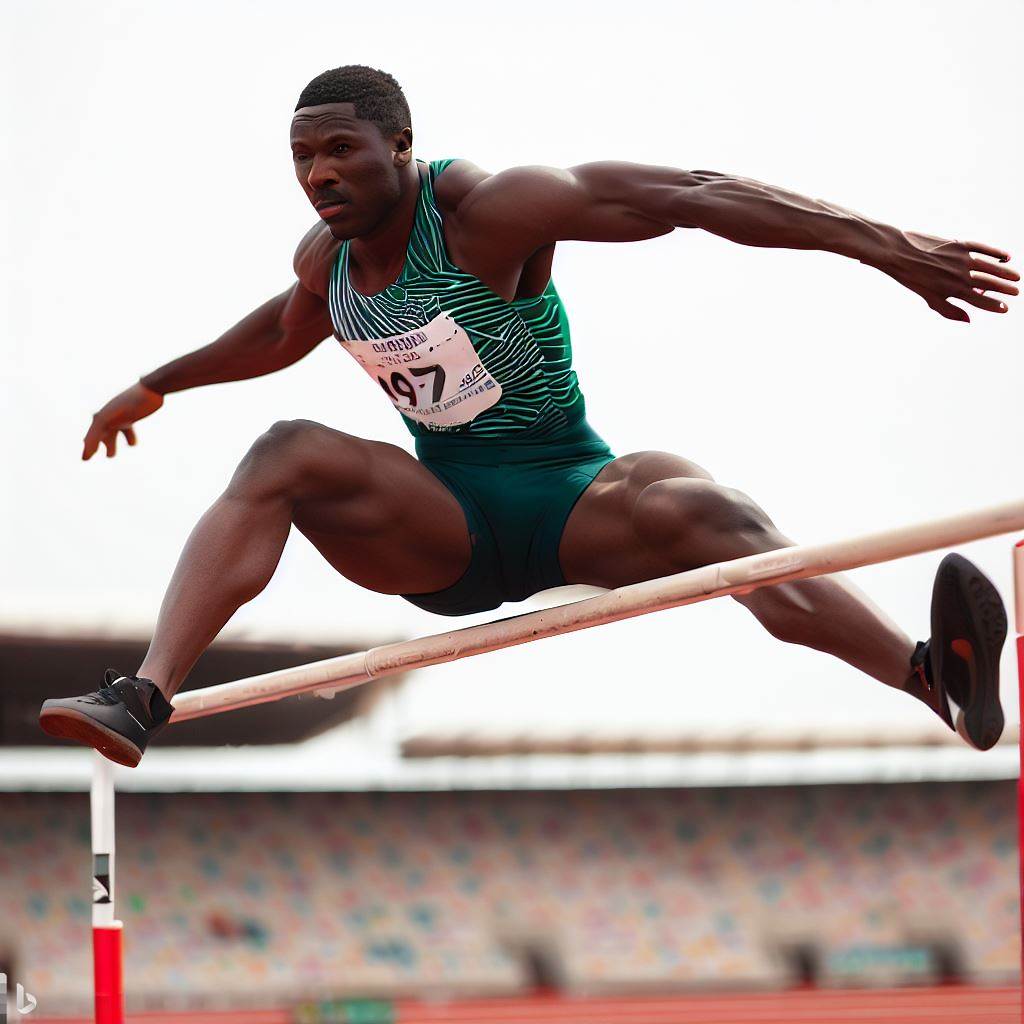
Delve into the Subject: Athletic Directors: Nigeria’s Sports Development Leaders
Opportunities for Improvement in Nigeria’s Athletics Training Systems
Despite the current challenges facing Nigeria’s athletics training systems, there are numerous opportunities for improving the performance of athletes.
No shortage of talent
- Nigeria has a wealth of athletic talent that can potentially compete on the world stage.
- Identifying and nurturing this talent at a young age is crucial for developing future champions.
- Investing in grassroots programs and talent identification initiatives can help to unearth hidden gems.
Partnership with international organizations
- Collaborating with international organizations such as the International Association of Athletics Federations (IAAF) can provide access to expertise and resources.
- Partnering with established athletics training programs in other countries can give Nigerian athletes exposure to different training methods.
- Networking with coaches and experts from other countries can also provide valuable knowledge and insights into the sport.
Sustainable funding
- Consistent and sustainable funding is essential for improving Nigeria’s athletics training systems.
- The government, private sector, and corporate organizations can provide funding through grants, sponsorships, and donations.
- Strengthening the relationship between sports governing bodies and sponsors can also help to attract funding for athletics development.
Implementing these opportunities can tremendously improve the performance of Nigerian athletes in international competitions and make the country a force to be reckoned with in the world of athletics.
Conclusion
Overall, Nigeria’s athletics training system has potential, but there are several areas that need improvement.
The lack of adequate facilities, poor funding, and outdated coaching techniques are major hindrances to the success of Nigerian athletes.
It is essential that the government and private organizations invest more in developing state-of-the-art facilities and equipment for the athletes to train effectively.
Additionally, coaches need to be retrained and updated on modern techniques to help athletes compete at the highest level.
The development of grassroots programs can help identify and nurture young talent, which will further strengthen Nigeria’s athletics program.
It is crucial that the country takes advantage of its athletic potential to boost its image and economy.
In view of the above, I implore Nigerian authorities and stakeholders to take the necessary steps to improve the country’s athletics training systems.
By doing so, Nigeria’s athletes will be able to compete effectively on the global stage, bringing glory and recognition to the nation.
Let’s work together to build a bright future for Nigerian athletics.

